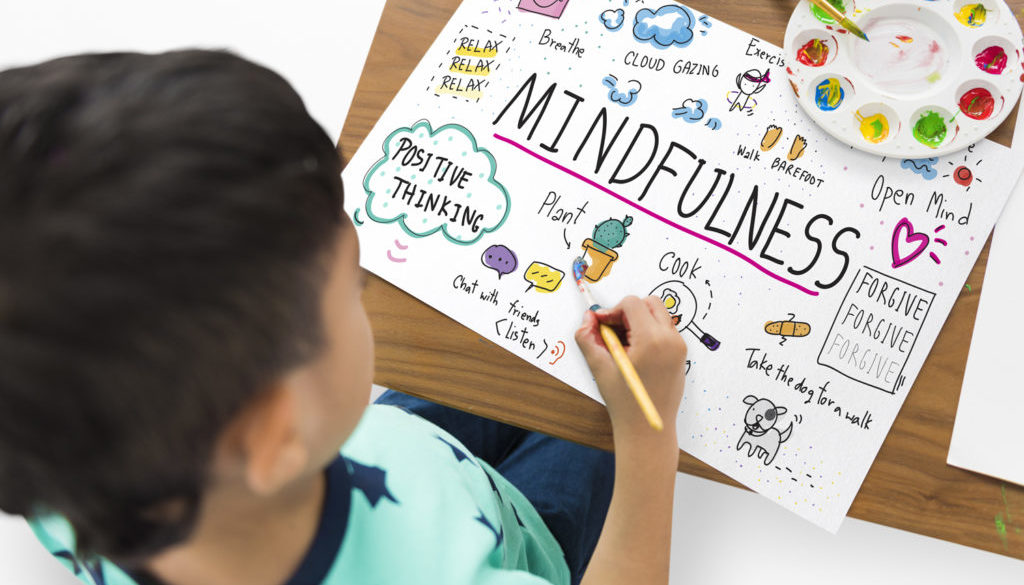Mindful Families

Mindfulness is about being present in the moment. This includes the awareness of one’s thoughts, feelings, and physical sensations. The goal of mindfulness is to become aware of your thoughts and feelings and accepting them, versus clearing your mind of all thoughts.
Research shows that teaching mindful practices to young children can support stress reduction, self-regulation, levels of well-being and increase the capacity for compassion. We already know that these activities make a difference with adults too. Mindfulness can improve emotional awareness, memory, and focus. This skill can also improve emotional awareness as well as reduce stress, anxiety, and depression.
Mindfulness is a state of mind rather than a particular action or exercise. However, as with most things, practice will improve your ability to be mindful. Try these simple ideas:
- Thoughts: Allow your thoughts to come and go, acknowledging them but not allowing them to control you. Think of this as a daily workout for your mind, so you are prepared to face the world without being overwhelmed.
- Breathing: Focus on intentional breathing and notice the physical sensations occurring when air is entering and leaving your lungs.
- Body Scan: Pay attention to the physical sensations throughout your body. Begin by focusing on your feet, noticing any sensations and move up through your body. Body scan and the five senses can be part of your everyday.
- Five Senses: The key is to focus on all your senses while observing your breath; accept your thoughts and let them go without judgment. Identify 5 things you see, 4 things you feel, 3 things you hear, 2 things you taste, and 1 thing you smell.
How can Mindfulness be a part of your everyday?
- During Transitions: Come up with five minutes a day to practice mindfulness. It could be a seated meditation first thing in the morning, before bedtime, or even while taking a shower. Practice it every day
- Mealtimes: Try mindful eating, notice, and discuss how the food looks, smells, the texture and taste.
- On The Go: Try playing the I Spy game to notice colors, shapes, letters, numbers, words, pictures, objects, etc.
- Take a Walk: Pay attention to how your body moves and feels with each step. Identify what you see, hear, smell.
Create “special playtime” with your child: Carve out five minutes a day, at least five days a week, to play mindfully with each child in your family. During this time, follow their lead! Use specific praise for things they do and try to avoid directing their play. While kids are naturally more mindful, this experience encourages them to keep at it while teaching us how to delight in them for who they are.





